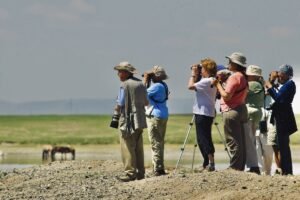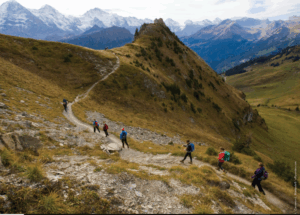Working together to defeat the COVID-19 outbreak : Xi Jinping

( Full text of China’s President Xi Jinping’s remarks at Extraordinary G20 Leaders’ Summit – President Xi Jinping attended the G20 Extraordinary Virtual Leaders’ Summit on COVID-19 via video link in Beijing, capital of China, March 26, 2020. )
It is good to join you. Let me begin by expressing my sincere appreciation to His Majesty King Salman and Saudi Arabia for having done tremendous work of communication and coordination to make this summit possible.
Facing the COVID-19 outbreak that caught us all by surprise, the Chinese government and Chinese people have been undaunted as we took on this formidable task. From day one of our fight against the outbreak, we have put people’s life and health first. We have acted according to the overall principle of shoring up confidence, strengthening unity, ensuring science-based control and treatment and imposing targeted measures. We have mobilized the whole nation, set up collective control and treatment mechanisms and acted with openness and transparency. What we fought was a people’s war against the outbreak. We have put up a strenuous struggle and made tremendous sacrifices. Now the situation in China is moving steadily in a positive direction. Life and work are quickly returning to normal. Yet, there is no way we will lower our guard or relax control.
At the most difficult moment in our fight against the outbreak, China received assistance and help from a lot of members of the global community. Such expressions of friendship will always be remembered and cherished by the Chinese people.
Major infectious disease is the enemy of all. As we speak, the COVID-19 outbreak is spreading worldwide, posing enormous threat to life and health and bringing formidable challenge to global public health security. The situation is disturbing and unsettling. At such a moment, it is imperative for the international community to strengthen confidence, act with unity and work together in a collective response. We must comprehensively step up international cooperation and foster greater synergy so that humanity as one could win the battle against such a major infectious disease.
For that to happen, I would like to put forth four proposals.
First, we need to be resolute in fighting an all-out global war against the COVID-19 outbreak. The community of nations must move swiftly to stem the spread of the virus. In this regard, I propose that a G20 health ministers’ meeting be convened as quick as possible to improve information sharing, strengthen cooperation on drugs, vaccines and epidemic control, and cut off cross-border infections. G20 members need to jointly help developing countries with weak public health systems enhance preparedness and response. I propose a G20 COVID-19 assistance initiative for better information sharing and policy and action coordination with the support of the World Health Organization. Guided by the vision of building a community with a shared future for mankind, China will be more than ready to share our good practices, conduct joint research and development of drugs and vaccines, and provide assistance where we can to countries hit by the growing outbreak.
Second, we need to make a collective response for control and treatment at the international level. This is a virus that respects no borders. The outbreak we are battling is our common enemy. All must work together to build a strongest global network of control and treatment that the world has ever seen. China has set up its online COVID-19 knowledge center that is open to all countries. It is imperative that countries pool their strengths and speed up research and development of drugs, vaccines and testing capabilities in the hope to achieve early breakthrough to the benefit of all. Discussions are also needed regarding the establishment of regional emergency liaison mechanisms to enable quicker response to public health emergencies.
Third, we need to support international organizations in playing their active roles. China supports WHO in leading the global efforts to develop science-based and proper control and treatment and minimize cross-border spread. I call on G20 members to enhance anti-epidemic information sharing with the support of WHO and to promote control and treatment protocols that are comprehensive, systematic and effective. The G20 platform for communication and coordination may be used to increase policy dialogue and exchange, and a high-level meeting on international public health security may be convened in due course. For China, we will be happy to join other countries and scale up support for relevant international and regional organizations.
Fourth, we need to enhance international macro-economic policy coordination. The outbreak has disrupted production and demand across the globe. Countries need to leverage and coordinate their macro policies to counteract the negative impact and prevent the world economy from falling into recession. We need to implement strong and effective fiscal and monetary policies to keep our exchange rates basically stable. We need to better coordinate financial regulation to keep global financial markets stable. We need to jointly keep the global industrial and supply chains stable. What China will do in this regard is to increase its supply of active pharmaceutical ingredients, daily necessities, and anti-epidemic and other supplies to the international market. What’s more, we also need to protect women, children, the elderly, people with disabilities and other vulnerable groups, and provide for people’s basic needs. China will continue to pursue a proactive fiscal policy and prudent monetary policy. We will continue to advance reform and opening-up, widen market access, improve the business environment, and expand imports and outbound investment to contribute to a stable world economy.
I want to call on all G20 members to take collective actions – cutting tariffs, removing barriers, and facilitating the unfettered flow of trade. Together, we can send a strong signal and restore confidence for global economic recovery. The G20 needs to draw up an action plan and promptly set up communication mechanisms and institutional arrangements for anti-epidemic macro policy coordination.
Now is a crucial moment, a time for us to rise up to challenge and act with swiftness. I am convinced that through solidarity and mutual assistance, we will prevail over this outbreak and we all will embrace a brighter future for mankind!
Courtesy : Xinhua , March 27 , 2020














